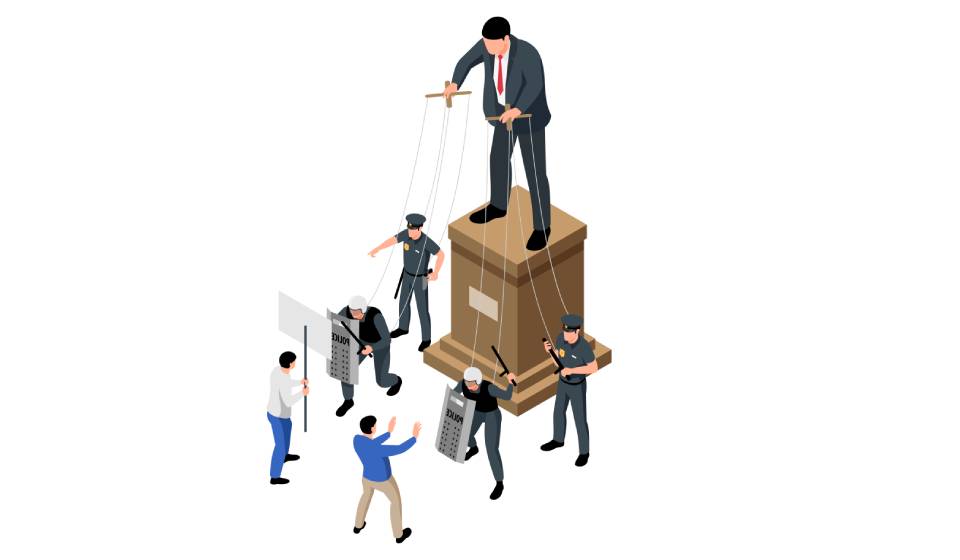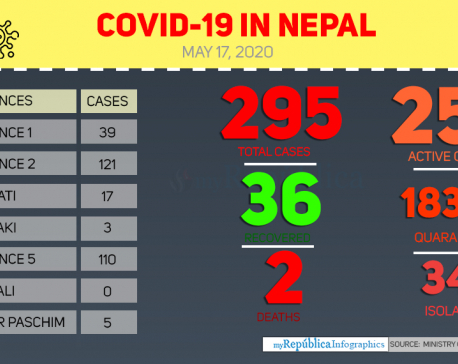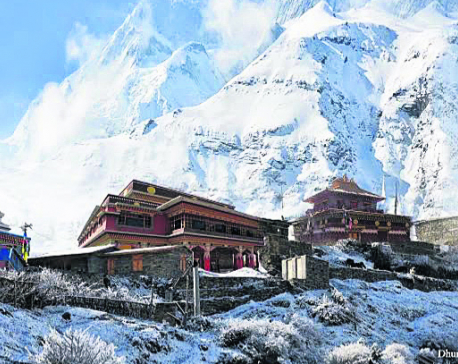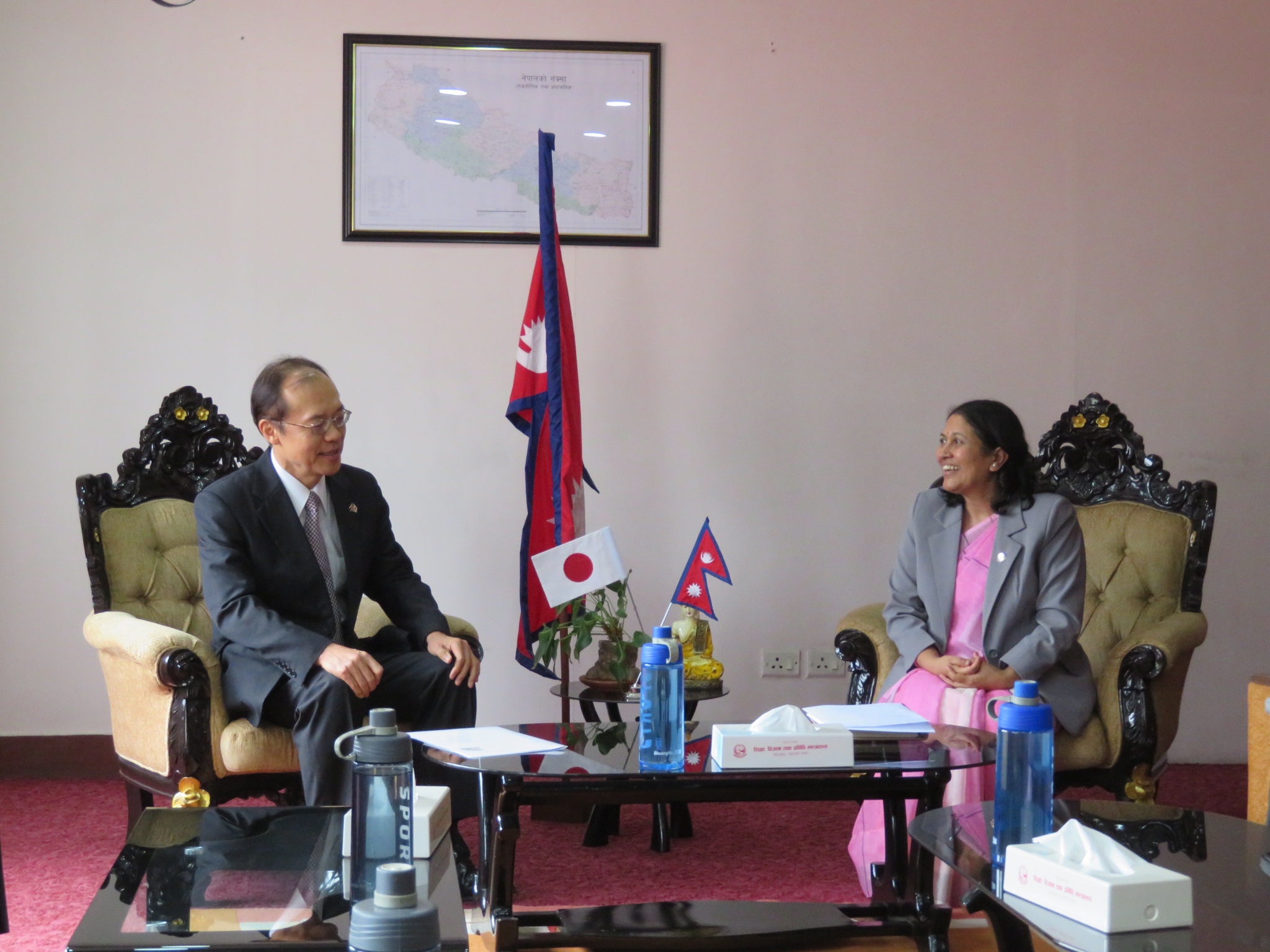
OR
Opinion
Political Impunity: What Politicians Need to Know
Published On: March 13, 2023 09:00 AM NPT By: Diwakar Dhakal

Why is political impunity over political liability rapidly escalating in Nepal? Here’s what the politicians need to know about the growing public distrust.
Since the genesis of the post-conflict leap era in Nepali politics, there has been rapid escalation of political mala fide interests. Over the period of time, the hard-hitting tumult of government structure and leadership convulsion has paved a way for political impunity, instead of political liability. As a result, the growing political distrust of the general public against the politicians and the political institutions is seen on a larger scale.
Stepping back in history, the then Rana ruler Padma Shumsher stated a popular phrase when he became the prime minister in 1948 A.D, that “I am the servant of people'', But, in today’s political time, Nepalis are unlucky to get good leadership who can internalize to perform in accordance with citizens' interests. The mistrust in the political leadership and governmental institutions reflects the glorious Nepali saying: “Jun Jogi Aaye Pani Kanai Chirekaa” which literally translates to “All saints come with their ears slits”. It implies the belief that irrespective of who comes to power, the person is always a demagogue. In our country, one comes and goes and others come, but hitherto, it has been evident that they all make citizens as laboratory experiments to work according to their political profits. After the fulfillments of individualized interests they escape from the apparatus of answerability and accountability, which fundamentally leads to the culture of impunity on a macroscale. Therefore, the laxity of moral authority is unequivocally seen in the existing ideological and political spheres of Nepal.
Internationally, the political answerability of leadership and the institutions are democratically exercised, which is a positive emblem of a law-abiding nation. When the prime minister of the UK, Rishi Sunak failed to wear a seat-belt, he was made liable and the police charged him with a fine of £500. China’s zero-covid policy became a political liability for President Xi Jinping where in spite of his assertiveness, Shanghai had seethed at a lockdown and hundreds were succumbed to death. Similarly, the former US president Donald Trump was held responsible for January-6 incitement of insurrection. A military-controlled court in Myanmar sentenced former ousted prime minister Aung San Suu Kyi 26 years in prison, from incitement and corruption charges, to illegal possession of walkie-talkies and breaking Covid restrictions. The previous South-African president Jacob Zuma was sentenced to 15 months for perpetrating a contempt of court. The accountability and culpability from the leadership clearly draws a de-escalation of conflict and prevalence of egalitarian law. But in Nepal, the absence of accountability from the leader's side has fallen down in the passage of time, where they ought to be responsible for it.
Meanwhile, the leaders are vehemently condemned for misusing their power and constant involvement in corruption, financial gain, chaos, political turmoil, economic stagnation which emanated the civic frustrations. For instance, even after having the Truth and Reconciliation Commission (TRC), the conflict-era victims have not received justice yet on ground reality. The then, Guerilla trek trail leader, a sitting prime minister “Prachanda '' is considered as wartime liable leader, for committing grand larceny of Rs. 23 billion in the name of cantonments alone. Additionally, several examples like unconstitutional move of house dissolution, clemency on political criminals, bribe negotiation tape recording, rent-seeking in federal cabinet, growing decriminalization of political parties, mawkish speech during election campaign, frequently changing political alliance in the mode of game theory etc. contravenes the separation of power and check and balance which has significantly slackened public’s faith in the leaderships and institutions. Consequently, the rule by law from unfaithful leaders and institutions exists instead of rule of law which reflects a popular saying, "Law is applicable for small people and enjoyable for big people”. Therefore, the state-sponsored criminal activities granted more space to political impunity which is a major cause of growing aversion among the public realm.
As French philosopher Voltaire once stated, “people are willing to be ruled by one lion rather than a hundred rats” which befits the existing Nepali case to the notion that the monarchical system was remarkably better than the contemporary political system. Owing to the present unscrupulous routine, poor accountability, amassing power culture of nepotism and favoritism, false promises, absence of the rule of law, lack of development in the fast-moving world are the key reasons why the general public have started losing confidence in politicians and maintain a distance from politics after post-conflict transitions in Nepal. Because of the ongoing miserable conditions, the younger generation is obnoxiously exasperated to leave the country for securing a better future. In consequence, its ripple-effects showcase the failure of political leaderships and institutions who were oriented to promote the public's prosperity. Thus, the culture of impunity is a cardinal hindrance for a country like Nepal to drive progress in time.
Despite the current impasse, to abolish habitual obedience of impunity, the formal institutions should formulate policy and effective execution of it with meaningful impacts for course correction. The clear-cut accountability and transparency should be maintained with visible rewards and punishment approaches to steer leaders not to get involved in any political benefits except which quantify public justice and well-being. Notwithstanding, wholesome institutional reforms are required to maintain the integrity, credibility and accountability of leaders who hold power in office. Michael Foucault in his book discipline and punish has affirmed about “reformative justice” where he says, instead of inflicting pain on wrongdoers, it reforms the entire personality of them in order to prevent such criminal offenses in society, which may take place in the future. In Nepal, because of political actors' direct and indirect involvement and influences, the people who are attached and associated with them obtain immunity power which results in passive political liability. Similar to that, the reformative instruments through lawful regulation can channelize to dilute impunity by reforming overall leaderships and institutional syndicate to gain the public's trust. Moreover, the role of civil societies, private sector, stakeholders, non-partisan groups, think tanks and the general public should be encouraged actively to maintain political liability and reshaping “behavioral change” in leadership.
Ultimately, the willpower of political leadership and institutions can only drive to metamorphose the landscape of leader-centered leadership into a people-centered leadership. It is dire to get out from the rapid routinization of political impunity where the government must take the issue seriously and enact laws that will foster the practice of political liability. Therefore, the ecosystem of political liability is inevitable for establishing political stability and welfare justice in a country to restore public’s trust in leadership level and institutions.
You May Like This

Health ministry confirms three new COVID-19 cases, number of total cases reaches 295
KATHMANDU, May 17: Nepal reported three new cases of COVID-19 on Sunday evening, taking the national tally to 295. ... Read More...

Dhurmus, Suntali to build ‘a Nepal within Nepal’
KATHMANDU, June 5: After successfully completing three settlement projects for earthquake victims and other communities, the actor couple Sitaram Kattel (Dhurmus)... Read More...

Nepal vs Kenya: Five crucial things Nepal looks for second match
KATHMANDU, March 12: Nepal is taking on Kenya on Monday in the second match of the ICC World Cricket League... Read More...











Just In
- Japanese envoy calls on Minister Bhattarai, discusses further enhancing exchange through education between Japan and Nepal
- Heavy rainfall likely in Bagmati and Sudurpaschim provinces
- Bangladesh protest leaders taken from hospital by police
- Challenges Confronting the New Coalition
- NRB introduces cautiously flexible measures to address ongoing slowdown in various economic sectors
- Forced Covid-19 cremations: is it too late for redemption?
- NRB to provide collateral-free loans to foreign employment seekers
- NEB to publish Grade 12 results next week








Leave A Comment